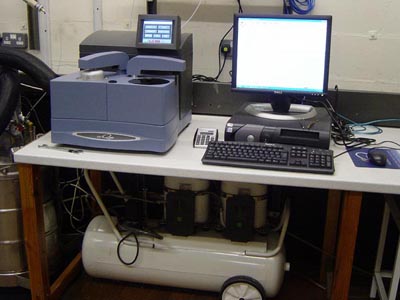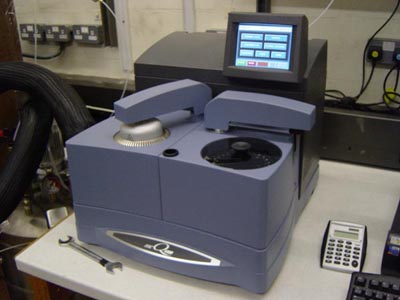Differential scanning calorimetry
Differential Scanning Calorimetry (DSC) is a powerful thermal analysis technique that can be used to examine transitions such as crystallisation and melting. The sample under investigation and a reference material are placed into separate heating chambers. The sample and reference are maintained at the same temperature by the machine as it heats them; feedback from a thermocouple in each chamber controls the amount of power supplied by the heating mechanism. In the region of a transition in the sample, e.g. melting, there is a difference in the power required to maintain the sample at the same temperature as the reference material, which is not undergoing a transition. Away from any transitions the difference in power is calibrated to be zero.
The output from a DSC scan can be in the form of the difference in power as a function of temperature or as a function of time. Quantities such as latent heats and activation energies can be determined from these graphs.
Images of the TA Instruments Q1000 model DSC machine and controlling computer in the Polymer Characterisation Laboratory, Department of Materials Science and Metallurgy, University of Cambridge (Click on images to view larger versions):
More information about DSC is available on the Macrogalleria website.



